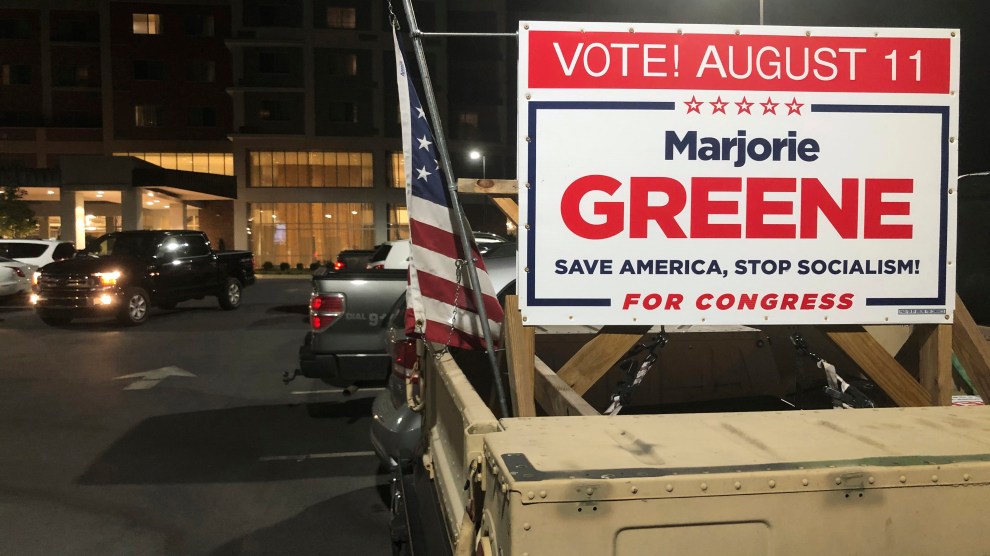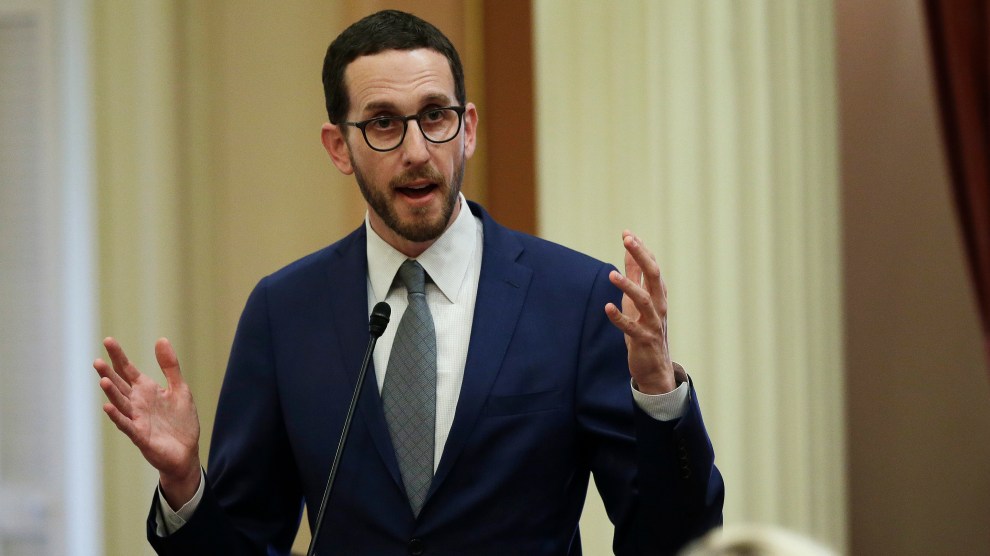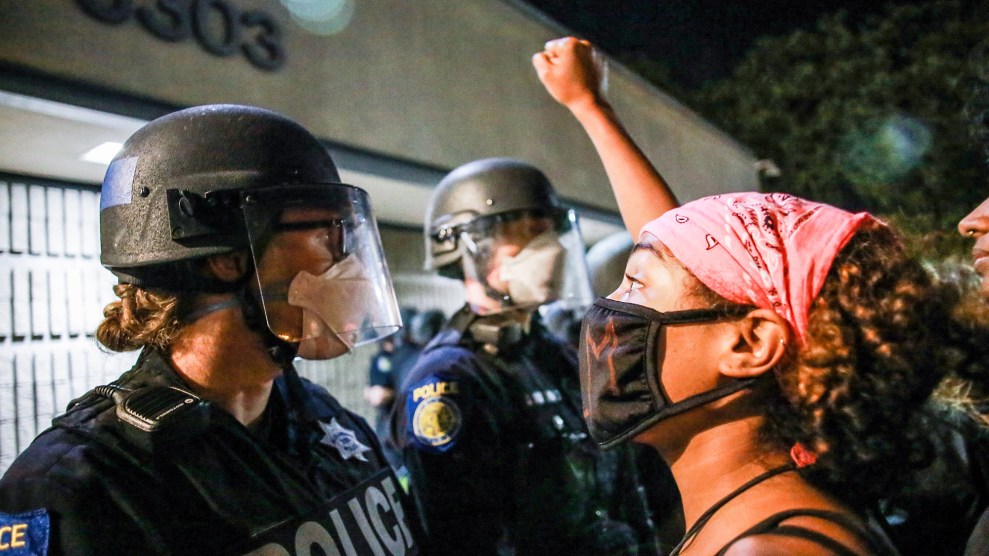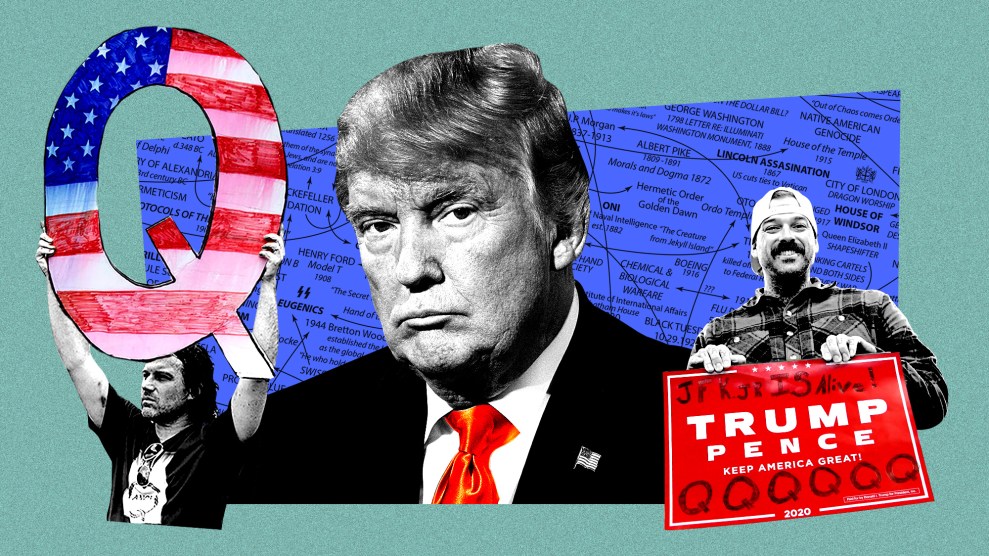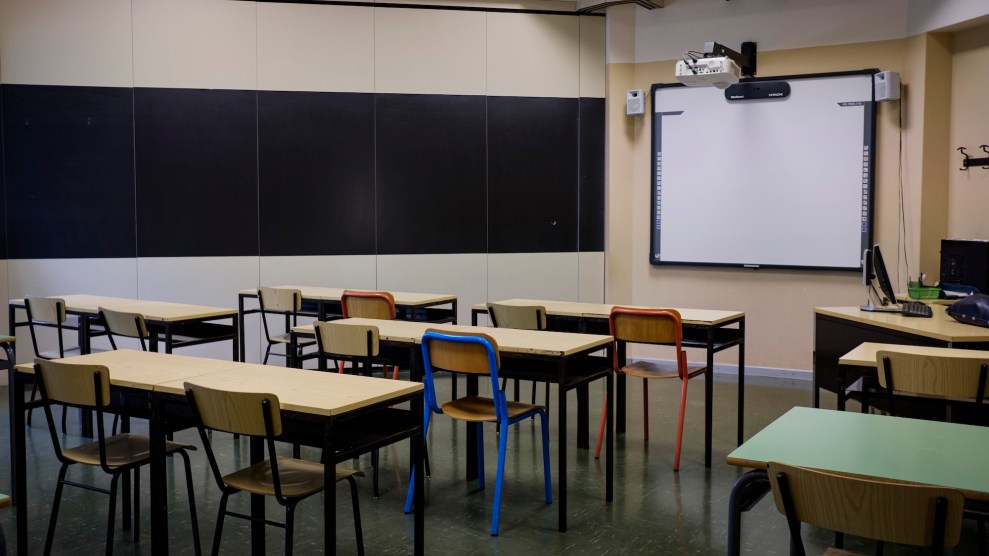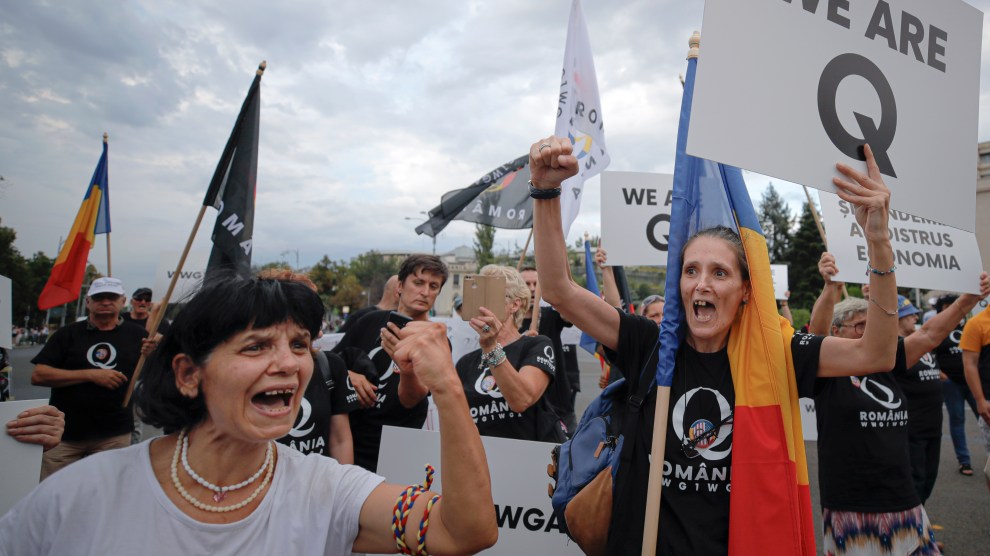
Romanian supporters of QAnon protest against the government's measures to prevent the spread of COVID-19 infections during a rally in Bucharest, Romania on Monday.AP Photo/Vadim Ghirda
Facebook said on Wednesday that it will be taking enforcement action targeting communities related to the QAnon conspiracy theory amid a larger crackdown against what it said were “anarchist groups that support violent acts amidst protests” including elements of Antifa and “US-based militia organizations.”
In a post on its website, Facebook explained that people from these groups would still be allowed to post on its platform “so long as they do not otherwise violate our content policies” but that the company would “restrict their ability to organize on our platform.”
Facebook said that the new enforcement would cover pages and groups on its namesake product as well as accounts on Instagram involved in discussions of violence.
Under the changes, Facebook says it has already removed over 790 groups, 100 pages, and 1,500 ads tied to QAnon, blocked over 300 hashtags on both Facebook and Instagram, and “additionally imposed restrictions” on over 12,000 Instagram and Facebook pages.
In the post, the company outlined plans to limit the spread and reach of the targeted groups by either removing them from Facebook outright, or through a series of actions including limiting their appearances in recommendations, searches, and on users’ newsfeeds. The company said that it would also prohibit such groups from using ads and monetization and fundraising tools.
It’s not immediately clear why Facebook would include antifa alongside action targeting QAnon and militia organizations. Since 1994, right-wing terrorism has been responsible for the murder of hundreds, while antifa has been responsible for zero deaths.
QAnon, the sprawling right-wing conspiracy theory about a cabal of elite liberal pedophiles has already likely been responsible for at least one murder in its three short years of existence. The FBI has also deemed it to be a pressing threat. One of the creators of a dataset at the Center for Strategic and International Studies tracking terrorism incidents explained to the Guardian that the data shows that “the most significant domestic terrorism threat comes from white supremacists” as well as “anti-government militias.” He noted that the data found that “left-wing terrorism” was not a “major terrorism threat.”
Facebook has strained to project a measure of evenhandedness in its enforcement actions, even in cases where problems are largely confined to its right-wing users. For example, the head of Facebook’s D.C. office Joel Kaplan, for example, pushed Mark Zuckerberg to include right-wing sites like the Daily Caller in its fact-checking programs alongside centrist news outlets, despite its ties to white supremacists. Facebook’s decision to include antifa and anarchists alongside groups with established records of violence is consistent with that strategy.

